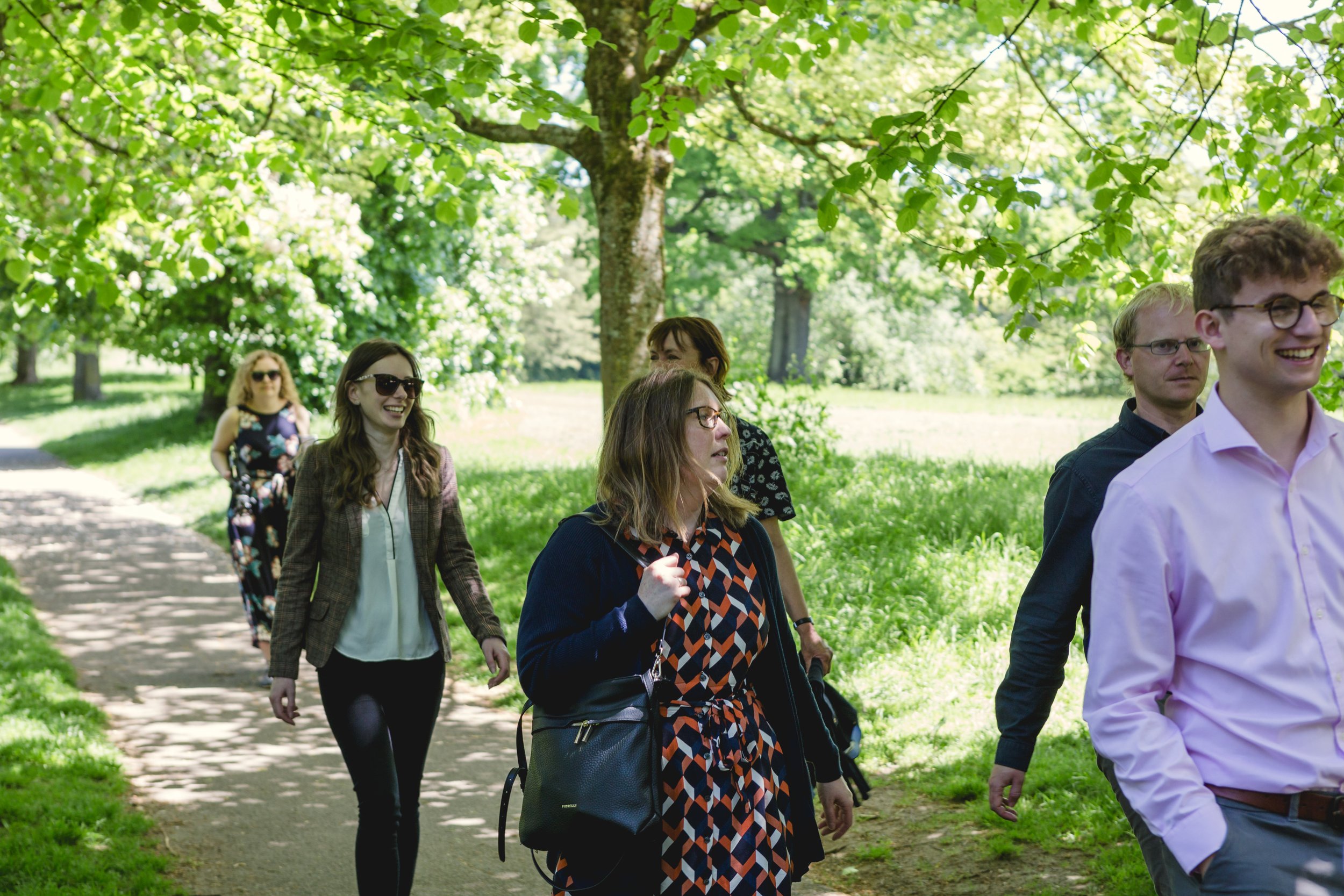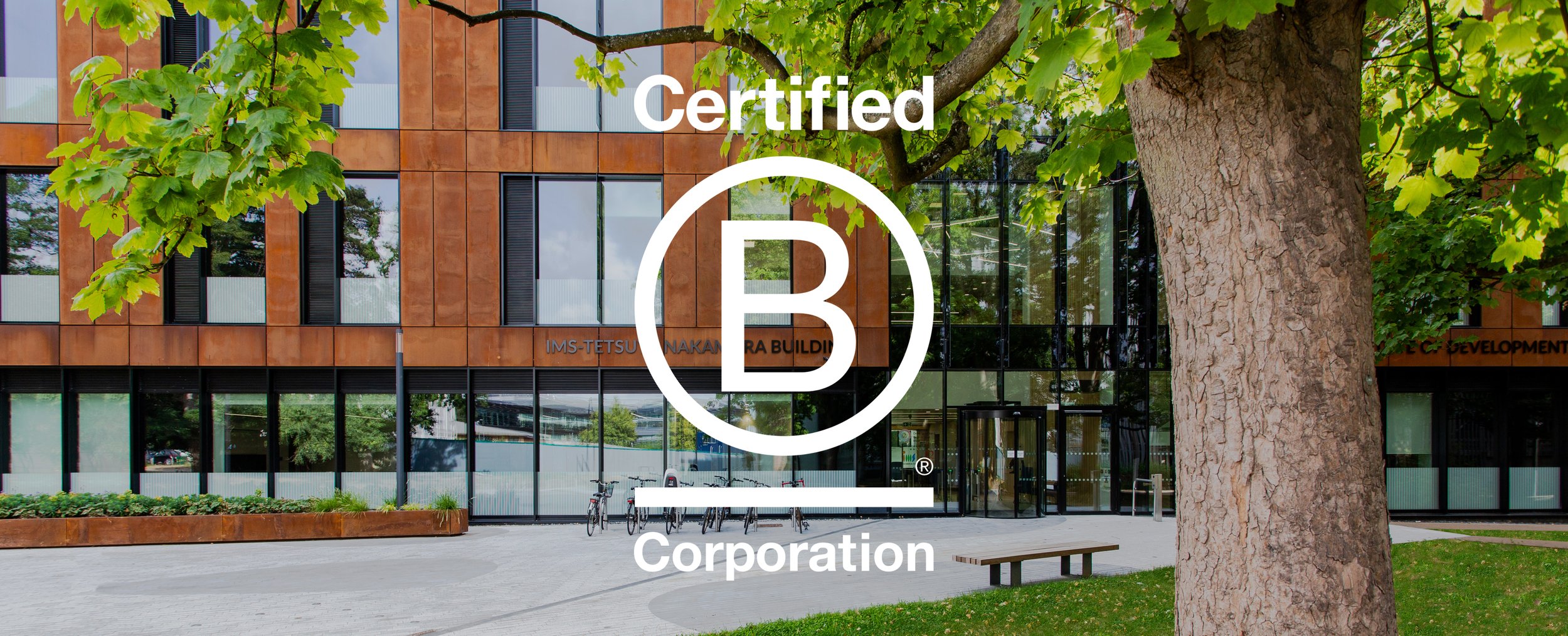B Corp Impact Report - March '24
/Our B Corp Journey
Having worked exceptionally hard to achieve certification over the past few years, we are proud to reach this milestone, but what does B Corp certification actually mean?
Holistic Sustainability
As a B Corp we are now part of a global network of businesses that have committed to meeting verified high standards of social and environmental impact and have committed to accountability to balance both profit and purpose.
The B in B Corp stands for Benefit referring to the benefit of all stakeholders and is designed to look at how businesses benefit community, workers, customers and the environment. It aims to measure the entire social and environmental impact of a business through assessment under five headings: Governance, Workers, Environment, Customers and Community.
Summary
So how did we do? Part of the B Corp ethos is to be open and transparent and to share best practice across the network. It is in this spirit that this impact report is compiled and we have included an extract of our current B Impact Score adjacent which is publicly available and can be viewed on the B Corp website.
Rated out of a maximum theoretical score of 200, the median score for businesses who complete the assessment is 50.9, underlining the high standards required across the five benchmarked areas of Governance, Workers, Environment, Customers and Community.
We are pleased to say we achieved a B Impact Score of 85.2, clearing the certification standard (80 points) and qualifying to take our place alongside the other B Corp businesses in the UK, currently covering over 55 industries and representing over 56,000 workers.
In the rest of this report we reflect on what our first year of B Corp certification has looked like, some of the opportunities and initiatives we have begun and areas we have identified as next our on target for continued growth and improvement.
Environment
Our strategy
To measure annually our environmental impact using the industry recognised ISO 14001 standard.
To assess and independently verify of our full Scope 1, 2 and 3 emissions.
To offset these using a recognised UN Carbon Neutral Now pledge scheme.
To develop a Carbon Reduction Plan.
2023 Pledges - What we said we would do
Reduce the production of general waste by 10% year on year (pro rata per member of staff).
Increase the level of recycling by 10% year on year (pro rata per member of staff).
Reduce the energy demand by 5% year on year (pro rata per member of staff).
Encourage the use of low embodied energy building materials.
Reduce the carbon intensity of project related travel by 10% year on year (pro rata per member of staff).
What we did do
Developed our carbon reduction plan, targeting areas with the largest impact on our footprint including our supply chain and travel.
Established new procedures for the measuring and monitoring of the environmental performance of our supply chain to best inform decisions moving forward.
Reviewed our work travel policy and appraisal process and introduced new measures to recognise the carbon impact of each journey with a view to prioritising low carbon travel such as train, cycle or electric vehicle.
What we will do
Identify opportunities to go beyond our ‘Scope 3’ emissions, recognising the impact we can have on the carbon footprint of the built environment and reach out to others in the industry to develop better use of low energy and carbon building materials and practices.
Governance
Our strategy
Our aim has always been to help our clients realise their vision through our creative and open approach; to innovate and create buildings that will stand the test of time. We include our commitment to fostering a sustainable practice for people, planet and place in our mission lock and make it integral to how we do work.
2023 Pledges - What we said we would do
Report and review our ESG performance at a management level.
Establish a wider ESG strategy and set up a series of working groups.
Continue to improve and report our business performance at regular Practice Lunches.
What we did do
Updated and published our code of ethics.
Set up ESG steering groups to discuss our business performance across all areas of the B Corp assessment, identify opportunities for improvement and put forward ideas to develop into betterment initiatives for the practice.
What we will do
This year we aim to identify the first initiative to come out of the steering groups to be taken forward and implemented
Workers
Our strategy
The people that make up SRA have always been at the heart of what we do and how we practice. As such it’s key to us that our employees feel valued and recognised and are well supported.
2023 Pledges - What we said we would do
Improve staff wellbeing.
Improve staff representation and feedback.
What we did do
Established working from home and office environment working groups to review working conditions and identify opportunities for improvement.
Introduced a Mental Health and Wellbeing group and trained up three members of staff as Mental Health First Aiders.
Provided further opportunities and support in work hours for staff training and career progression.
What we will do
Moving forward we are aiming to continue our support for training and career progression, investigating opportunities to integrate apprenticeships into our support for our staff members still in education and removing barriers to entry to the profession.
We intend for our ESG strategy groups to help inform and instruct us on further areas for improvement.
Community
Our strategy
As a people driven business, we very much see ourselves as part of our community, both locally and as part of our wider profession and industry. Our strategy has always been to engage with both of these to better understand and support the communities we are part of.
2023 Pledges - What we said we would do
Continue to reach out to local schools and work with those interested in gaining experience and understanding of the profession.
Establish benchmarks to assess the ESG credentials of our supply chain.
Continue to support local charities as part of our ongoing fundraising efforts.
What we did do
Provides over 150hrs of work experience to local schools.
We furthermore established a reciprocal relationship with a local university, holding a seminar series on entry into the profession and attending university design reviews and presentations. • Introduced a new assessment matrix to assess the ESG performance of our suppliers and contacted organisations representing more than 80% of our expenditure.
We have reviewed the feedback and, where appropriate and possible, have begun updating our supply chain with suppliers who are performing well and can evidence their ESG credentials
Worked to support 5 separate charities through various schemes and initiatives across the year, raising money and providing professional support and expertise.
What we will do
We hope to be able to continue this process of engagement with our supply chain and aim to communicate better our hopes and aspirations and ways in which we can work with both our existing and potential new suppliers to best promote our collective ideals.
Customers
Our strategy
Our entire business strategy is based on our relationship with our clients, the value we place on nurturing these and the importance of working with our clients to continually improve and help them achieve their goals.
2023 Pledges - What we said we would do
Continue to support and nurture our existing customers.
Reflect and innovate to ensure we are at the cutting edge of providing a quality service.
The strength of our relationships has always been reinforced by open dialogue and continued feedback. That said, we wanted to initiate a more formal process of post-occupancy evaluation (POE) of key projects to better review performance to promote best practice and innovation.
What we did do
Formulated a new POE evaluation process and checklist, reviewed this internally and benchmarked this against client expectations.
Contacted key recent clients to discuss the POE process and garner interest in taking part in the review.
Completed two formal POE interview exercises, visiting the projects a year post completion and identifying project learning and successes.
What we will do
We aim to roll out this new process across further key projects and identify themes and opportunities for sharing best practice.
Share this learning as part of our regular ‘Project Lunch’ series.
Looking Ahead
One year in and we hope to really expand and embed some of our learning over the next 12 months. With some great ideas already generated, here are some of the key projects for the year ahead:
Identify the first initiative to come out of the ESG steering groups to be taken forward and implemented.
Expand our engagement with our supply chain and communicate better our hopes and aspirations and ways in which we can work with both our existing and potential suppliers to best promote our collective ideals.
Identify opportunities to go beyond the measurement of our ‘Scope 3’ carbon emissions, recognising the impact we can have on the carbon footprint of the built environment and reach out to others in the industry to develop better use of low energy and carbon building materials and practices.
Roll-out our Post-Occupancy Evaluation process across all newly completed projects and identify themes and opportunities for sharing best practice.











